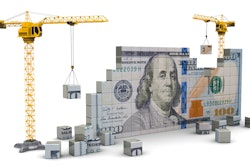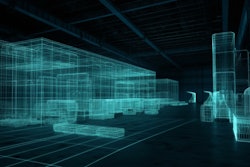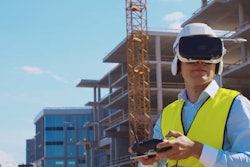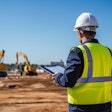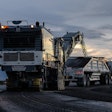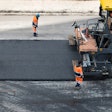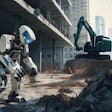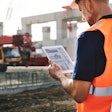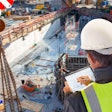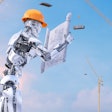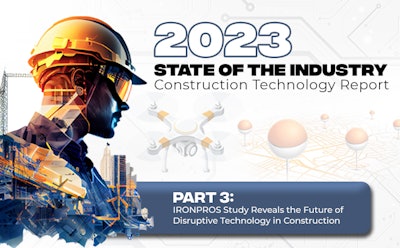
Part 3:
Artificial intelligence (AI), the Internet of Things (IoT), augmented/virtual reality (AR/ VR) and interconnected equipment will change construction forever, as they have already changed other more tech-forward industries. But when? Here, we look at adoption patterns and plans for these technologies. We also suggest respondents may be further along in adoption of some of these technologies than they think.
This article is part three of the FULL 2023 State of the Industry: Construction Technology Report, a four-part series that outlines the growing technology present in the construction industry, how contractors are currently embedding the technology into their workflow, the future of disruptive technology and the impact technology will have in acquiring a younger generation. Use the navigation bar below to maneuver through valuable industry insight:
- PART 1: IRONPROS Research Finds Field Productivity Software Most Significant Construction Technology Going into 2023
- PART 2: GPS-Asset Tracking Hardware, a Top 2023 Equipment Technology Priority
- CURRENT ARTICLE - PART 3: IRONPROS Study Reveals the Future of Disruptive Technology in Construction
- DOWNLOAD THE PDF *Save to your desktop for easy reading & reference
- PART 4: Will Younger Construction Professionals Drive Technology Adoption?
- FULL 2023 State of the Industry: Construction Technology Report
During 2022, IRONPROS surveyed almost 200 construction professionals on their current usage of or plans to use various digital technologies integrated with field-based construction equipment and assets. These construction technology product categories may have components that integrate with other technologies used by management-level professionals, but are primarily aimed at collecting data from or automating operation of production equipment.
The product category respondents reported using, planning or budgeting for most frequently was GPS Asset Tracking Hardware. The category most respondents said they were planning or budgeting for was collision avoidance technology.
Interconnected Equipment
 Based on the percentage of respondents who had adopted or saw technology as important in the next 10 years, interconnected equipment was the single most significant technology studied. This was driven by a slight lead over some other categories in respondents already using the technology, but significantly percentages say interconnected equipment will be important in either five or 10 years. Interconnected equipment, which involves digitally mediated coordination between pieces of equipment engaged in a project is a critical way for autonomous digital processes to come to market in equipment-centric construction.
Based on the percentage of respondents who had adopted or saw technology as important in the next 10 years, interconnected equipment was the single most significant technology studied. This was driven by a slight lead over some other categories in respondents already using the technology, but significantly percentages say interconnected equipment will be important in either five or 10 years. Interconnected equipment, which involves digitally mediated coordination between pieces of equipment engaged in a project is a critical way for autonomous digital processes to come to market in equipment-centric construction.
We have seen this trend manifest already in repetitive construction settings like roadbuilding, where digital coordination between automated pavers, compactors and even material trucks result in a smoother, more reliable linear asset by eliminating stops caused by interruptions in the process.
As more equipment comes to market with or is augmented with aftermarket robotic features, these pieces of equipment can be coordinated based on real-time production information and reality capture from the field. This will improve quality, cut down on the operating engineer and managerial workloads and potentially speed up the work-in-progress phase of projects. In this fashion, lean business process and efficiency improvements can come to construction through automation.
Augmented/Virtual Reality Training
Augmented and virtual reality tools designed as training aids for equipment and field situations have been in market for a while. These products are mostly tightly aligned with specific classes of equipment, and training may even be designed around a specific make or model.
Sensors/Internet of Things, Artificial Intelligence
While the internet of things (IoT) and related sensors and artificial intelligence were far back in the pack of technologies, AI and IoT are already coming to market in ways that may not be immediately apparent to respondents and other contractors. AI, in particular, brought up the rear in this study with 35 percent of respondents saying it is not important and only seven percent reporting they use it now, but if contractors dig below the surface, they will often find AI features hard at work in their equipment, front-end and back-end systems. IoT similarly underpins most contractors’ telematics programs. Equipment automation is also driven by one or both of these technologies.
IRONPROS is tracking the use of AI to support things like machine vision for equipment automation, features coming to construction software to, for instance, automate scheduling or optimize selection of projects to bid.
Related Content
- Cat Command Ushers in a New Era of Construction
- VIDEO: Construction Robotics and Automation
- VIDEO: The Future of Construction Telematics
- VIDEO: Smart Trailers and Telematics
- VIDEO: Trimble and Hilti Launch Connected Hand Tool Partnership
- Trimble Show Machine Control at BAUMA
- Grade Control Makes It Rain for This Contractor
- Constrafor Uses AI in Financial Automation Offering
- Equipment Rental Software Delivers Availability Data Through AI
- Three AI Technologies for Project Risk Mitigation
- AI Boosts Warfel’s Safety Protocol
- Estimating Software Trends Include AI
- Zetane Leverages AI for Estimating
----
FULL CONSTRUCTION TECHNOLOGY STUDY:
Navigate to your next insightful report:
- PART 1: IRONPROS Research Finds Field Productivity Software Most Significant Construction Technology Going into 2023
- PART 2: GPS-Asset Tracking Hardware, a Top 2023 Equipment Technology Priority
- CURRENT ARTICLE - PART 3: IRONPROS Study Reveals the Future of Disruptive Technology in Construction
- DOWNLOAD THE PDF *Save to your desktop for easy reading & reference
- PART 4: Will Younger Construction Professionals Drive Technology Adoption?
- FULL 2023 State of the Industry: Construction Technology Report



